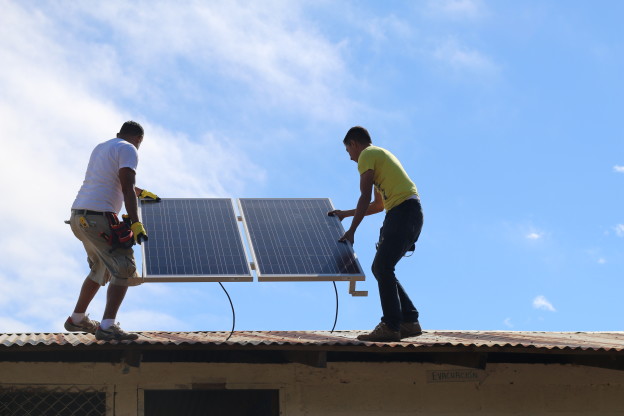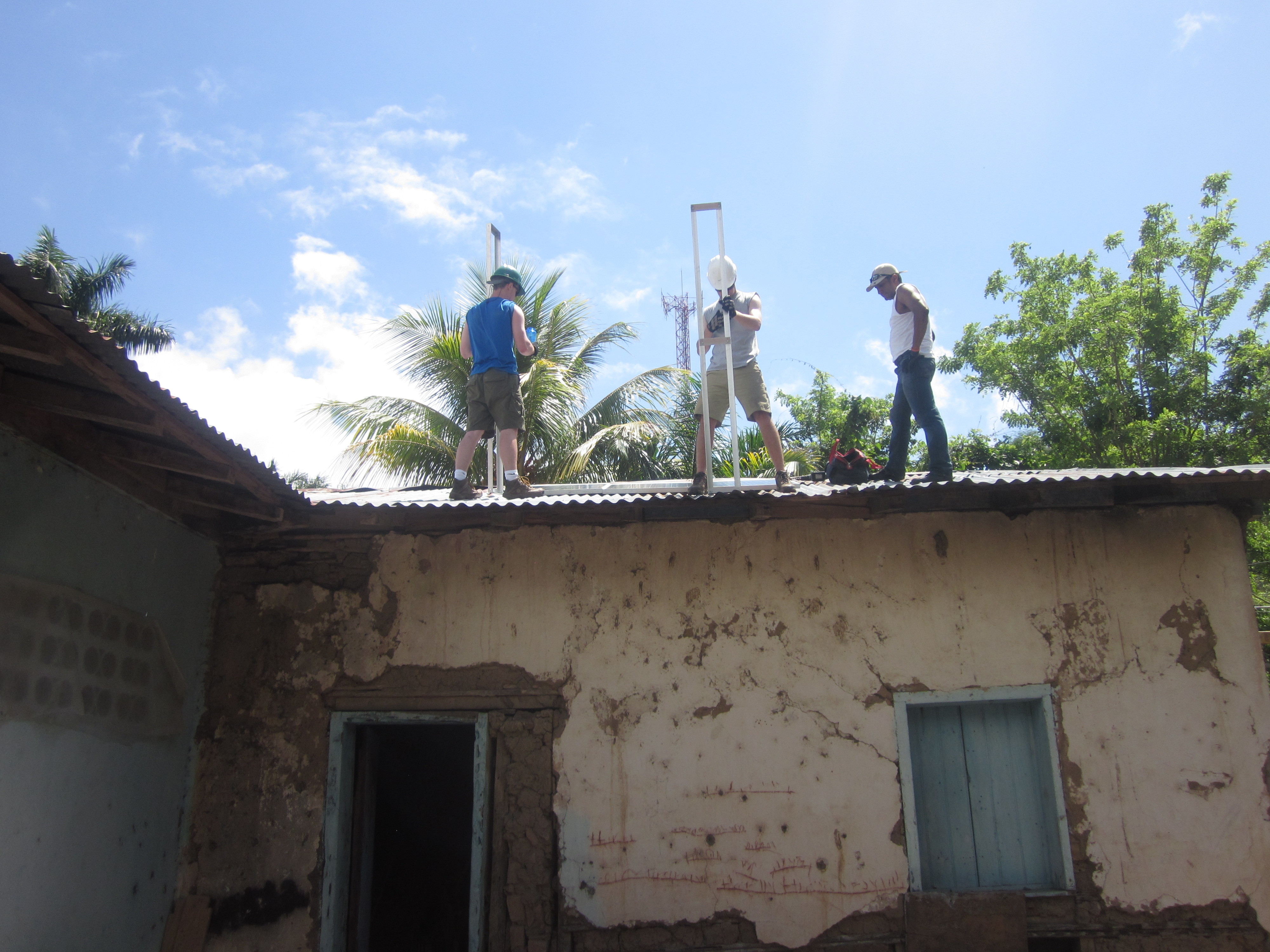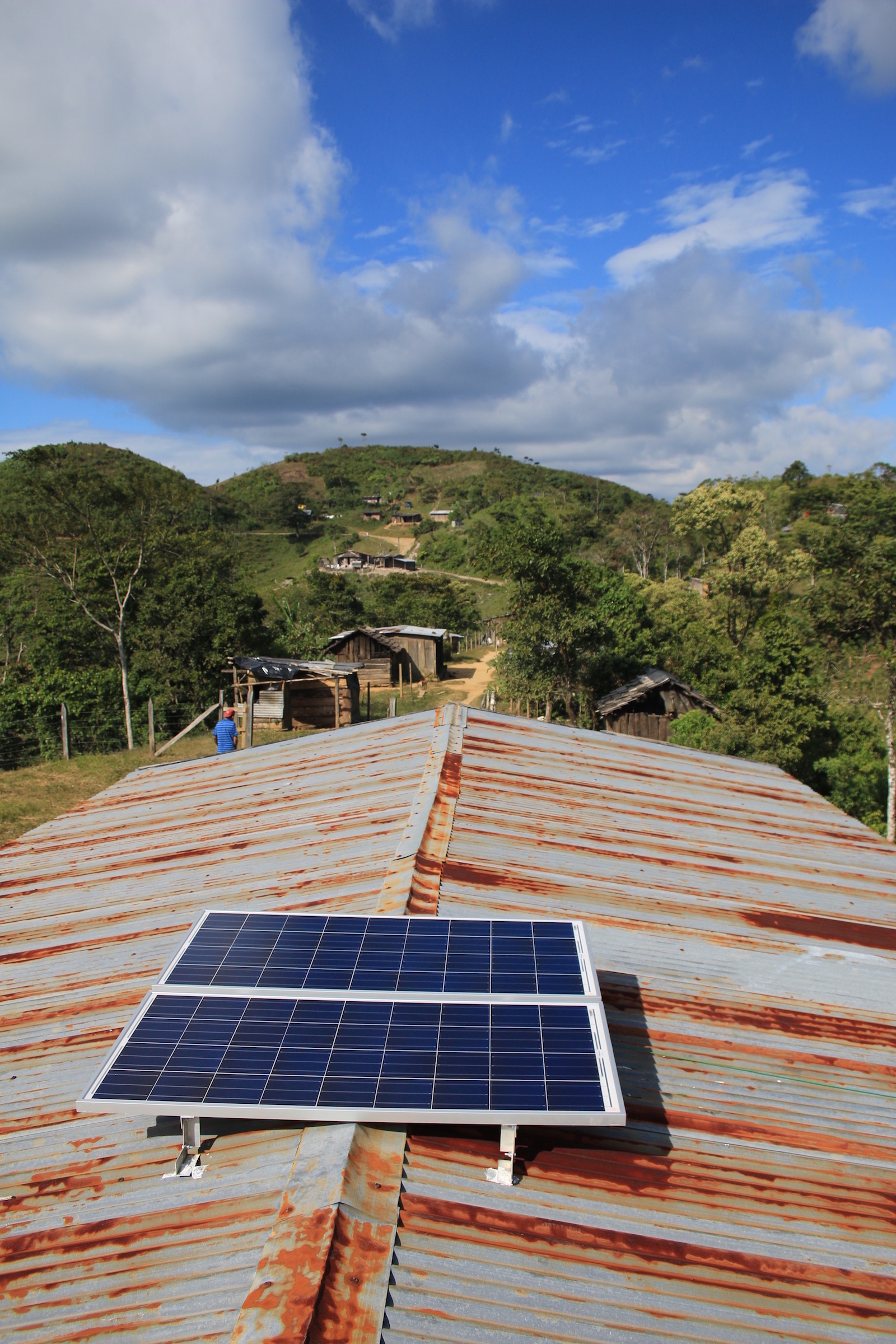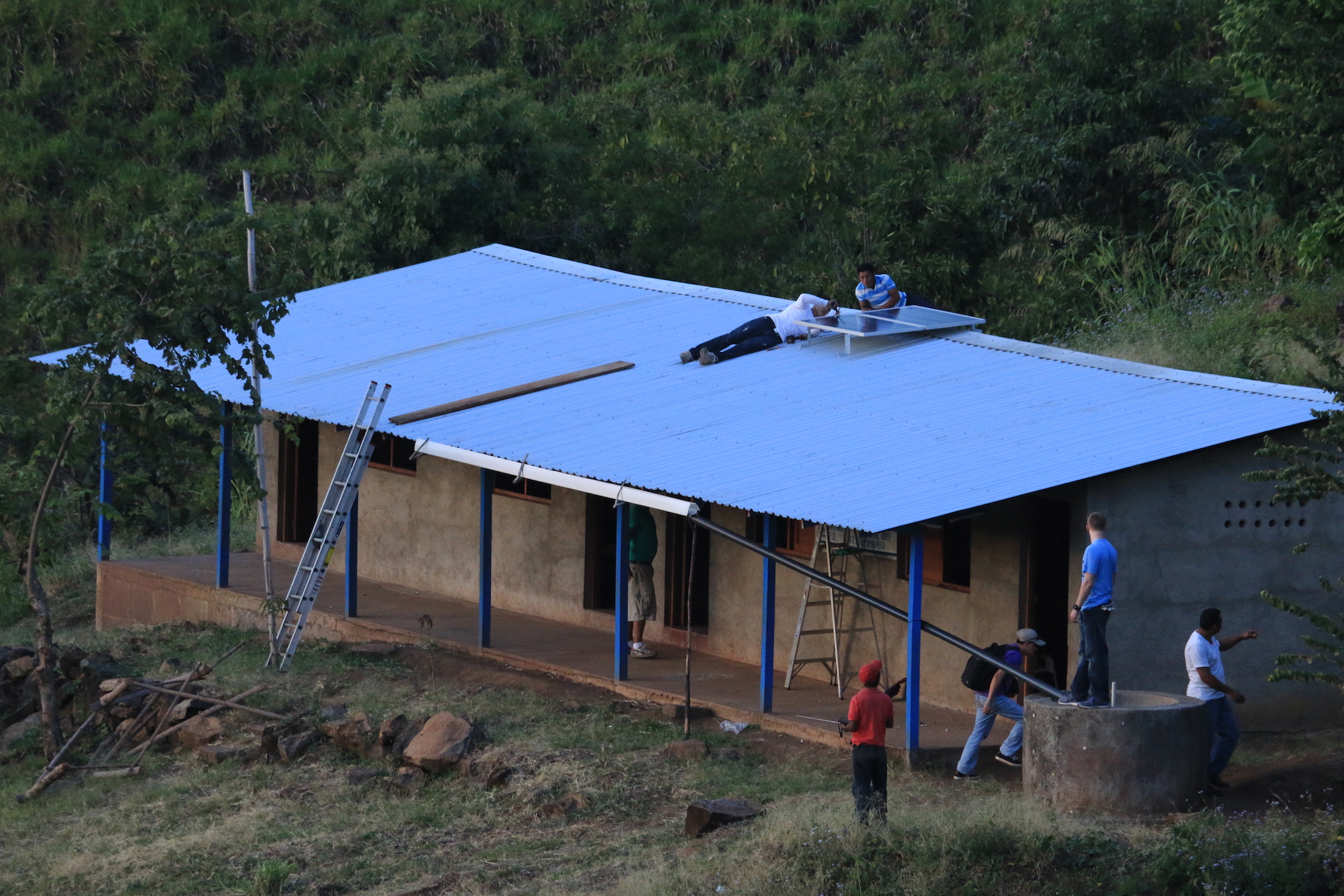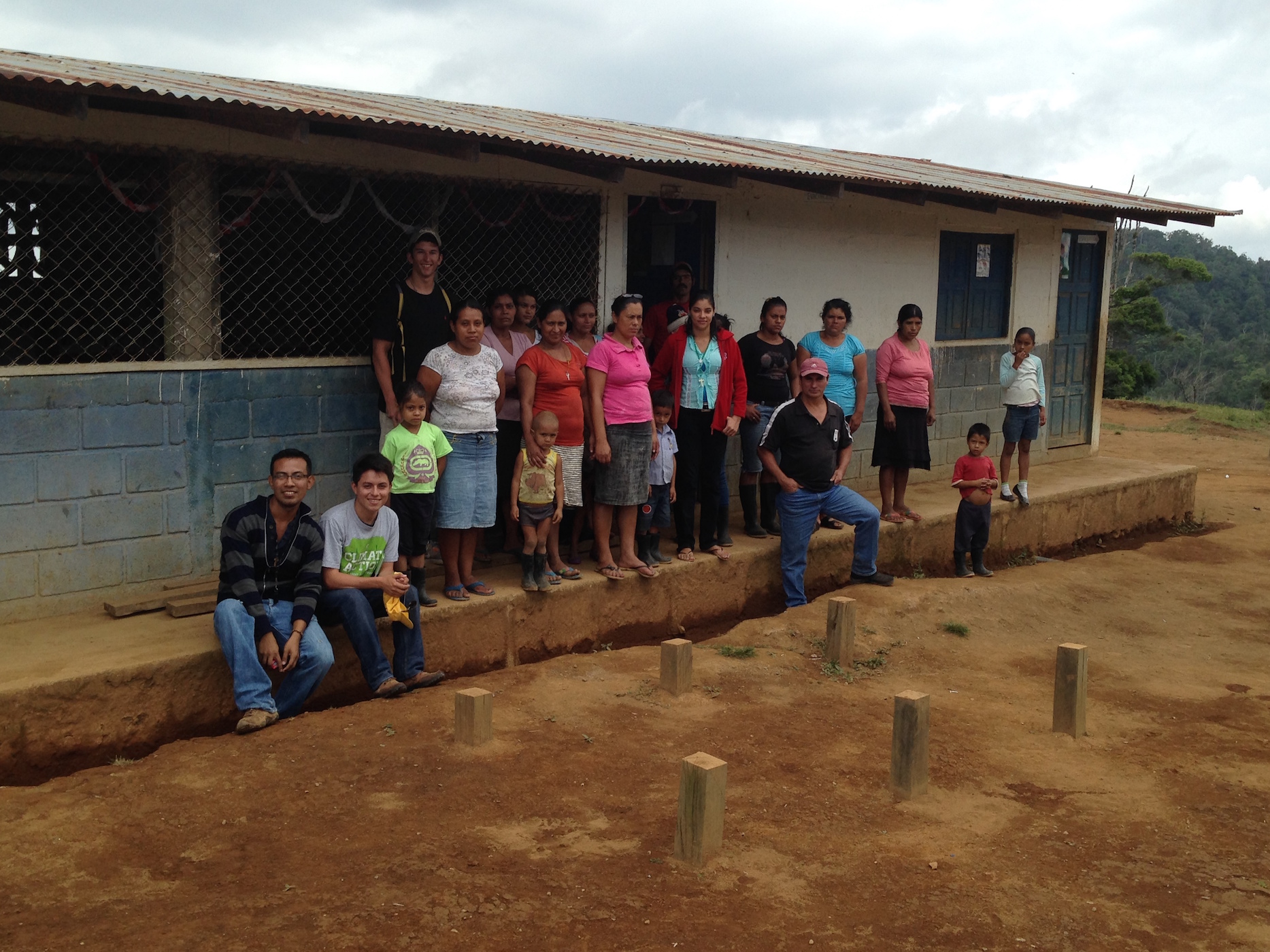For the majority of Americans, living entirely without access to electricity is a thought that almost never comes to mind. In a country where livelihoods revolve around the energy grid, going without access to devices as simple as light bulbs seems unfathomable. But for 1.2 billion people on Earth, access to energy is not an option. When the sun goes down, people are forced to either stop their activities for the day or resort to dangerous alternatives to energy, such as kerosene lanterns or open flames.
Alex Wilhelm, a senior business major at UNC-Chapel Hill, recognized this problem and decided it was time to make a change. Ed Witkin, a member of Strata Solar LLC, heard about Wilhelm’s idea and connected him with Steven Thomsen, who also worked for Strata. The three men, realizing their shared visions, founded United Solar Initiative.
In May 2014, USI confronted energy poverty head-on when it launched its pilot project in the region of Matagalpa, Nicaragua. USI installed panels on an art center and community center in a town called San Ramón, Nicaragua. The solar panels benefit the students and the adults of the community because it allows for meetings and education to take place outside of typical daylight hours.
In December 2014, Thomsen and USI Project Development Coordinator Charlie Egan helped install solar panels on two schools in a mountainous region outside of San Ramón. The schools, Mina Verde 2 and San Antonio de Upa, received panels so that community members could use the building at night, similar to the first project.
Don Nelson Soza, a member of the community outside of Managua, realized the full benefits of the solar system.
“This system has a good impact for us,” he said. “Now, we have meetings at nights. …This building is a very important community center in this city.”
Wilhelm said one of the goals of the solar panels is to enable adults to take classes at night because they are not afforded the chance to do so during the day.
“They’re always working during the day and don’t have the opportunity to learn like their children do,” Wilhelm said.
Wilhelm was drawn to Nicaragua because of a connection in Durham, North Carolina. Sister Communities of San Ramón, Nicaragua, a nonprofit that focuses on developing education projects, partnered with USI for its first project. SCSRN built the schools that received solar panels from USI.
In addition to its partnership with SCSRN, USI partnered with a solar company based in Nicaragua called Suni Solar. Suni Solar installed the panels, while USI oversaw the process from start to finish. The partnership with Suni Solar is integral to USI’s mission of uniting the solar industry and addressing global issues of energy poverty. USI also has local partners that make its work possible. Strata Solar LLC and Schletter Inc. donated money and materials to USI for the projects in Nicaragua.
The solar panel systems are designed to be sustainable and long-lasting. Each system should last 25 years and the batteries have to be replaced every five years. Also, each system produces enough energy to power 16 LED light bulbs, which sufficiently provides light for the schools. Wilhelm is proud of the work USI accomplished in the two communities in Nicaragua.
“I think we can do more in a developing country with one solar panel than we can in the U.S., and I think that’s pretty special,” he said.
Whereas a couple of solar panels in the U.S. would not be able to generate enough power for one family, 300 watts of power can sustain an entire community in Nicaragua.
“When we installed solar in the first two communities, it was like an entire event, everyone was involved,” Wilhelm said. “I think the communities really understand how big of an impact these panels can have.”
He admitted that he was initially worried about how successful the panels would be. He knew that security could potentially be an issue, and was concerned that the panels would be taken shortly after being installed. However, to his excitement, Wilhelm’s expectations were incorrect.
“One of our concerns was theft,” he said, “but the community members understood that this material was so valuable to them that they protected it themselves.”
Wilhelm and other members of USI continue to follow up with the communities in Nicaragua on a quarterly basis. They ensure that the panels are functioning properly, and if there are concerns, they let Suni Solar know so they can be addressed. Wilhelm considers the projects in Nicaragua a huge success and is pleased with the difference the panels have made.
“We’re able to apply technology that is picking up in the U.S., but in developing countries, it’s making more of an impact,” he said.
Written by: Lydia Odom


